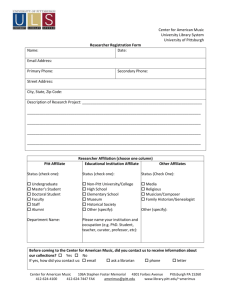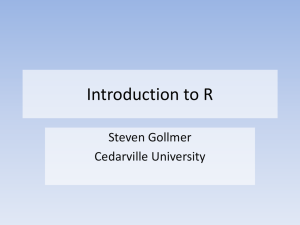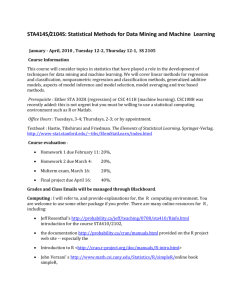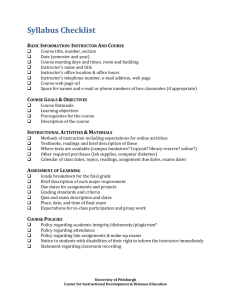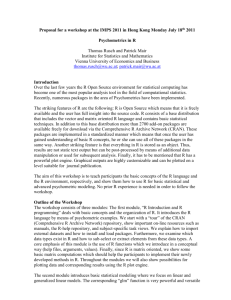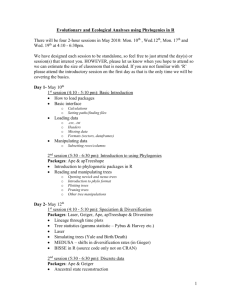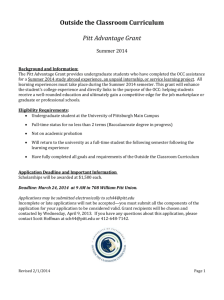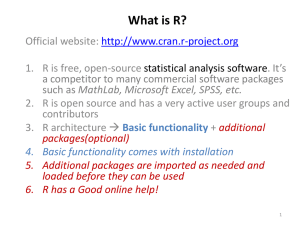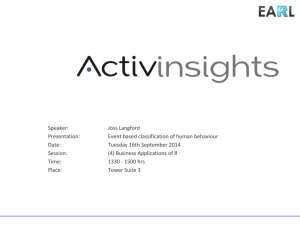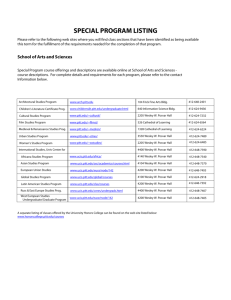Statistical Foundations of Bioinformatics Data Mining
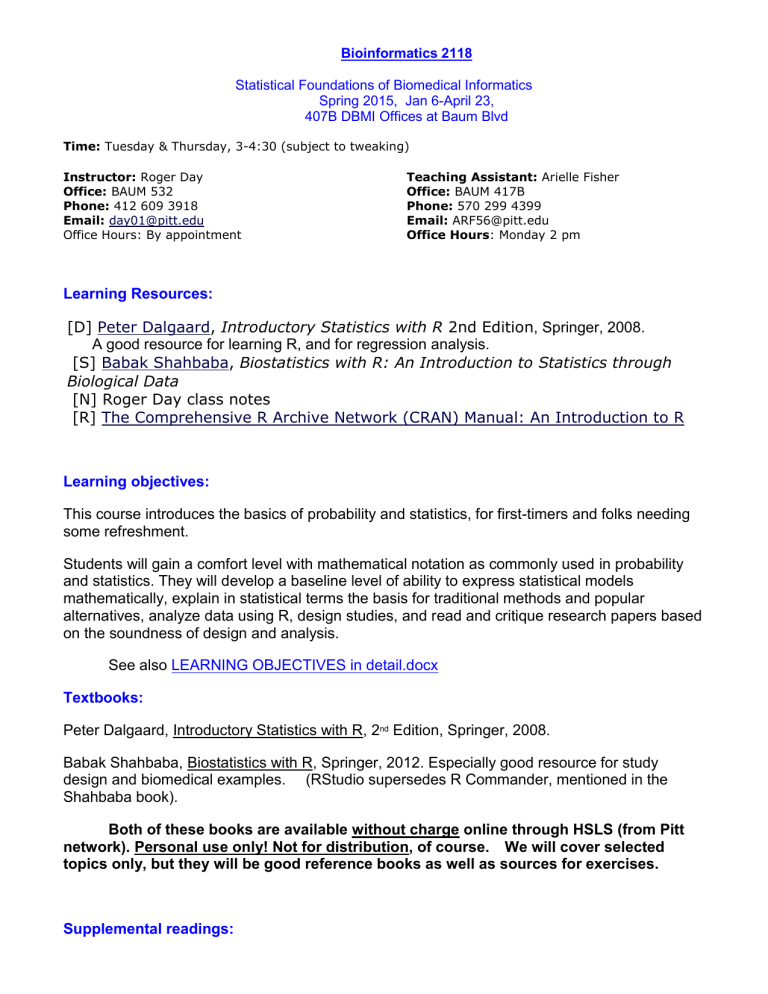
Bioinformatics 2118
Statistical Foundations of Biomedical Informatics
Spring 2015, Jan 6-April 23,
407B DBMI Offices at Baum Blvd
Time: Tuesday & Thursday, 3-4:30 (subject to tweaking)
Instructor: Roger Day
Office: BAUM 532
Phone: 412 609 3918
Email: day01@pitt.edu
Office Hours: By appointment
Teaching Assistant: Arielle Fisher
Office: BAUM 417B
Phone: 570 299 4399
Email: ARF56@pitt.edu
Office Hours: Monday 2 pm
Learning Resources:
[D] Peter Dalgaard , Introductory Statistics with R 2nd Edition
, Springer, 2008.
A good resource for learning R, and for regression analysis.
[S] Babak Shahbaba , Biostatistics with R: An Introduction to Statistics through
Biological Data
[N] Roger Day class notes
[R] The Comprehensive R Archive Network (CRAN) Manual: An Introduction to R
Learning objectives:
This course introduces the basics of probability and statistics, for first-timers and folks needing some refreshment.
Students will gain a comfort level with mathematical notation as commonly used in probability and statistics. They will develop a baseline level of ability to express statistical models mathematically, explain in statistical terms the basis for traditional methods and popular alternatives, analyze data using R, design studies, and read and critique research papers based on the soundness of design and analysis.
See also LEARNING OBJECTIVES in detail.docx
Textbooks:
Peter Dalgaard, Introductory Statistics with R, 2 nd Edition, Springer, 2008.
Babak Shahbaba, Biostatistics with R, Springer, 2012. Especially good resource for study design and biomedical examples. (RStudio supersedes R Commander, mentioned in the
Shahbaba book).
Both of these books are available without charge online through HSLS (from Pitt network). Personal use only! Not for distribution, of course.
We will cover selected topics only, but they will be good reference books as well as sources for exercises.
Supplemental readings:
Bioinformatics 2118 http://cran.r-project.org/manuals.html
, and specifically http://cran.r-project.org/doc/manuals/R-intro.html
Later you can move on to http://cran.r-project.org/doc/manuals/R-lang.html
There are also lots of tutorials online for R.
I am fond of "R-Inferno.pdf", which describes various pitfalls. Free online.
Instructor : Roger Day, 412-609-3918, day01@pitt.edu
. Office hours are by appointment.
I will generally reserve time after class for questions.
Assignments, Quizzes, Class participation
There will be frequent assigned exercises, some involving R programming. Do your best; if you cannot do the exercise by the due date, you must notify me before the due date and explain your difficulty. Let me repeat: If you run into difficulties, do not hesitate. Call me!
Short in-class quizzes will be frequent.
You will be asked many questions during class! Please keep up with the reading. Just to be clear: “reading” means reading , then asking questions in class. I do not have a formula for grading.
Your job is to learn, not to “impress” me. My job is to help you learn, not to “evaluate” you.
Academic Integrity
All students are expected to comply with the University of Pittsburgh’s Policy on Academic
Integrity ( http://www.pitt.edu/HOME/PP/procedures/02/02-03-03.html
). Any student suspected of violating this obligation will be required to participate in the procedural process, initiated at the instructor level, as outlined in the University Guidelines on Academic Integrity.
Some people enter research careers without an internally driven allegiance to truth and integrity.
Some later achieve the appearance of professional success, but they are failures. If you are deficient in this area, please pick a different line of work.
Disabilities
If you have a disability that requires special testing accommodations of other classroom modification, you need to notify both the instructor and the Office of Disability Resources and Services.

